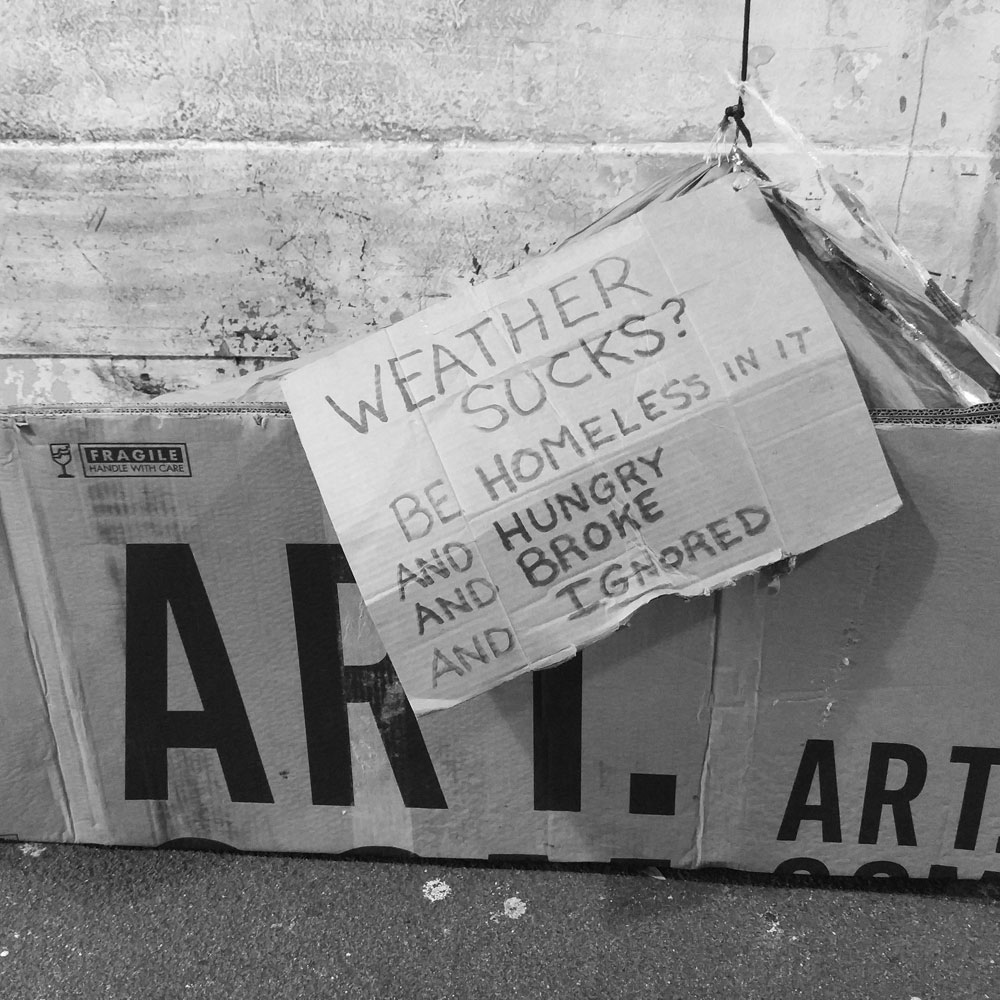
June 9, 2019; Bloomberg News
As some NPQ readers will recall, in May 2018, Seattle’s city council unanimously approved a tax of $275 per employee, assessed on large employers to raise $47 million a year to address homelessness. (About 585 businesses would have been affected.) The measure itself was a compromise from an original proposal to assess $500 a year, but it was hoped the money would spur increased investment in affordable housing and emergency shelter. It was a start, but it was also not to be. A month later, faced with intense opposition from Amazon and Starbucks, the Council reversed course, voting down the tax it had approved unanimously a month earlier on an 8–1 vote.
The tax went away, but the gap in funding did not, as Matt Day and Noah Buhayar from Bloomberg News explain.
In a city with a booming real estate market, homelessness is a large, chronic problem. As Day and Buhayar report, “Street homelessness in Seattle has become a constant reminder of civic failure in a progressive city that’s thriving economically. Tent encampments are a regular sight along highways and under bridges, while makeshift shelters have appeared in neighborhoods where homes regularly fetch more than $1 million.”
A study by Maggie Stringfellow and Dillip Wagle from McKinsey & Company estimated that in Seattle and surrounding King County, government spending would have to double from $196 million to a range of $360–410 million a year to meet the need. The business tax alone wouldn’t have closed that gap, but it would have been a good first step.
Stringfellow and Wagle concede that’s a lot, but they also note that, in addition to the obvious human benefits of providing affordable housing and keeping over 11,000 people housed and off the streets, $400 million a year is “still less than the $1.1 billion that homelessness is estimated to cost the Seattle-area economy as a result of extra policing, lost tourism and business, and the frequent hospitalization of those living on the streets.”
Sign up for our free newsletters
Subscribe to NPQ's newsletters to have our top stories delivered directly to your inbox.
By signing up, you agree to our privacy policy and terms of use, and to receive messages from NPQ and our partners.
Many of the city’s business leaders don’t think that government should play a lead role in providing human services, however. They see it as inherently inefficient and believe private organizations can do the work better. As the city council debated increasing taxes on large businesses last year to fund expanded services, NPQ cited a biting statement from a Starbucks spokesperson: “If they cannot provide a warm meal and safe bed to a five-year-old child, no one believes they will be able to make housing affordable or address opiate addiction.”
Jeff Bezos, the founder of Seattle-based Amazon, summed up the non-governmental approach toward building a social safety net in comments he made last September to the Economics Club. As reported in Vox, “If you have a mission, you can do it with government, you can do it with nonprofit or for-profit. If you can figure out how to do it with for-profit, that has a lot of advantages: It’s self-sustaining.”
Some major Seattle-area companies have guided their philanthropic resources toward the work of select nonprofits. Microsoft, for example, has chosen to invest in building affordable housing—but it believes the need is greater outside Seattle and the suburban communities that surround its corporate headquarters. Amazon supported the work of Mary’s Place, a shelter for homeless families and a favorite of Bezos, by building out 47,000 square feet of space in a skyscraper at a cost of “$100 million over a decade in grants and foregone rent.” They also expect to pay “$30 million in in-kind office space and grants to FareStart, a nonprofit that provides job training to people in poverty or at risk of homelessness.” There is no doubt that these nonprofits do good work, but they are no substitute for the public sector.
What’s missing in Seattle (and King County) is a willingness to dedicate the public resources needed to meet the scale of the housing shortage. Recognizing the limits of individual philanthropy, venture capitalist Heather Redman said to Bloomberg, “They are doing good things—it’s not enough. There are fundamental fault lines in Seattle that have almost become so big that you can’t cooperate to do the right thing.”
What’s absent in Seattle—and, of course, elsewhere—is the understanding that while philanthropy can play an important catalytic role in devising new solutions, it cannot solve public problems all by itself. A year after Seattle’s “Amazon tax” went down in flames, the funding that tax would have provided is still as desperately needed as ever.—Martin Levine and Steve Dubb












